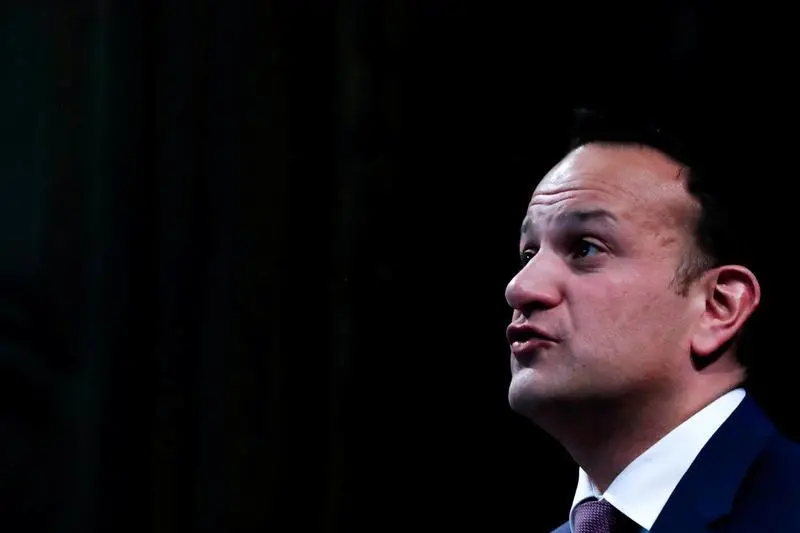PHOTO
DUBLIN - Ireland's deputy prime minister Leo Varadkar, who is due to take over as prime minister in December, said he was encouraged by the pragmatism and lack of "magical thinking" demonstrated in recent years by new British Prime Minister Risi Sunak.
Varadkar, who was a key player in trade talks between Britain and the European Union during an earlier stint as prime minister, said however that Ireland would be realistic about Sunak's history as a Brexit supporter.
Irish officials in recent weeks reported encouraging signs in talks between European Union and British officials over post-Brexit trade with Northern Ireland, an issue that has threatened to trigger a trade war.
Some Irish officials have voiced hopes that recent economic upheaval might make Britain more likely to engage seriously in talks to avoid a trade war with Brussels.
"I think he has demonstrated during his period as chancellor that he did have a real understanding of the economy and how it works ... and a real concern for businesses and jobs," Varakdar said of Sunak at a press briefing on Tuesday.
"And I think he has probably demonstrated a lot of pragmatism and less of the magical thinking that we perhaps have seen from some British politicians and I think that is encouraging," he said.
Dublin, however, needs to be realistic in its expectations of a breakthrough due to Sunak's history as an early supporter of Brexit, Varadkar said.
Prime Minister Micheal Martin, who is due to step aside in December under the terms of a coalition agreement, on Tuesday congratulated Sunak on his appointment and called on him to move quickly to start substantial engagement on the Northern Ireland Protocol, the key issue in the dispute between London and Brussels.
"Building on work already underway, there is a real opportunity for the EU and UK to find jointly agreed solutions on the issues pertaining to the Protocol, and I urge Prime Minister Sunak to move quickly to substantive engagement with the EU on that basis," Martin said in a statement.
(Writing by Conor Humphries; Editing by Andrew Cawthorne and Emelia Sithole-Matarise)





















